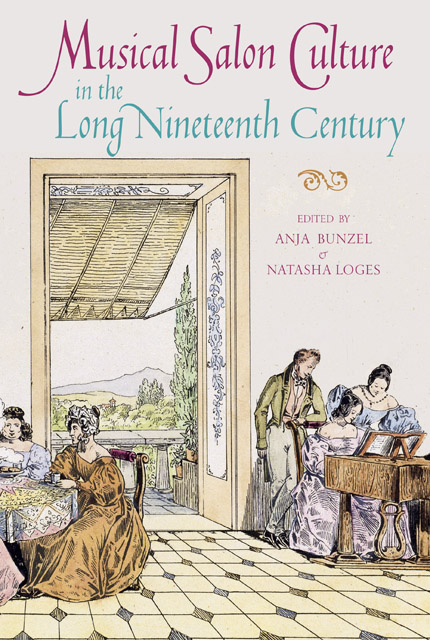14 - Jessie Hillebrand and Musical Life in 1870s Florence
Published online by Cambridge University Press: 17 January 2023
Summary
Jessie Taylor Laussot Hillebrand (1826–1905) has received little scholarly attention. Yet her activities in Florence as a salon hostess, piano pedagogue, and founder and director of the first choral society in Italy (initially the Società Musicale Fiorentina, later the Società Cherubini, established in 1860) were important in Italian musical life. Typically, these activities overlapped; for example, the Società rehearsals initially took place in Jessie’s home, where she also hosted her salon. Her significance is largely evaluated through her close relationships with Richard Wagner, Hans von Bülow and Franz Liszt. A recent collection edited by Mariateresa Storino focuses on her relationship with the latter. An essay by David Cormack clears up some misunderstandings and provides many facts, but also pleads for an ‘abduction [of Jessie Laussot] from the [Wagner’s] Seraglio’. Key to this is the reassessment of her unpublished correspondence, which remains largely unscrutinised. So far, at least 380 letters sent to at least thirty-two recipients have been located, above all her revealing correspondence with Hans von Bülow, Adolf von Hildebrand, Julie Ritter (1824–64?) and Johanna Fuchs (1833–74). Most of these letters deal with matters of business and networking while others, such as Bülow’s and Ritter’s, are deeply personal in nature.
Drawing on hitherto unpublished correspondence, this chapter offers a series of chronologically organised vignettes from the 1860s and 1870s which convey the role of Jessie’s Florence salon connections in mediating the success of her protégés, including Ettore Pinelli (1843–1915), Giovanni Sgambati (1841–1914) and Giuseppe Buonamici (1846–1914); and how the musical and social opportunities afforded by her choral society enabled her to navigate her relationships with von Bülow, Liszt and Wagner on several levels, as well as influencing Italian music institutional life. The aim here is not so much to explore the musical details of Jessie’s salon, but to reveal how the connections she cultivated there enabled her to fulfil overlapping private and professional agendas. Her activities can be seen as a reflection of her self-perception as a cultural mediator between different cultural and national spheres.
Born in London on 27 December 1826, Jessie Taylor went to Dresden in 1842 to study the piano. She had learned German from her father, an important translator of German literature. In Dresden she encountered many musicians, including von Bülow, who studied with the same piano teacher, Cäcilie Schmiedel (who died in 1848).
- Type
- Chapter
- Information
- Musical Salon Culture in the Long Nineteenth Century , pp. 211 - 224Publisher: Boydell & BrewerPrint publication year: 2019

